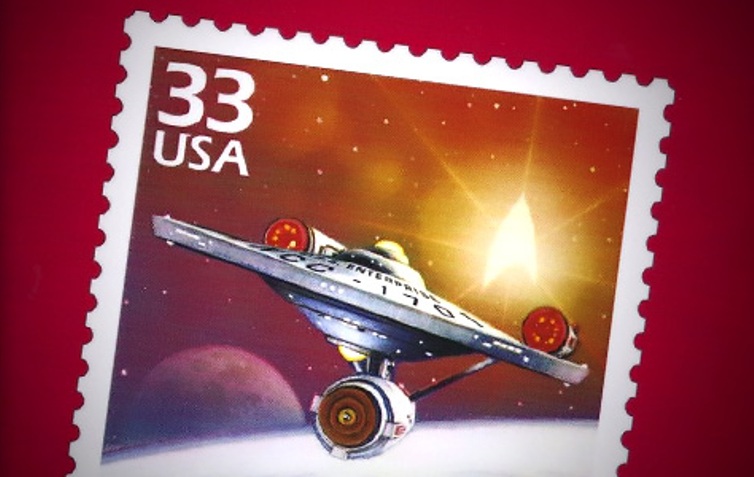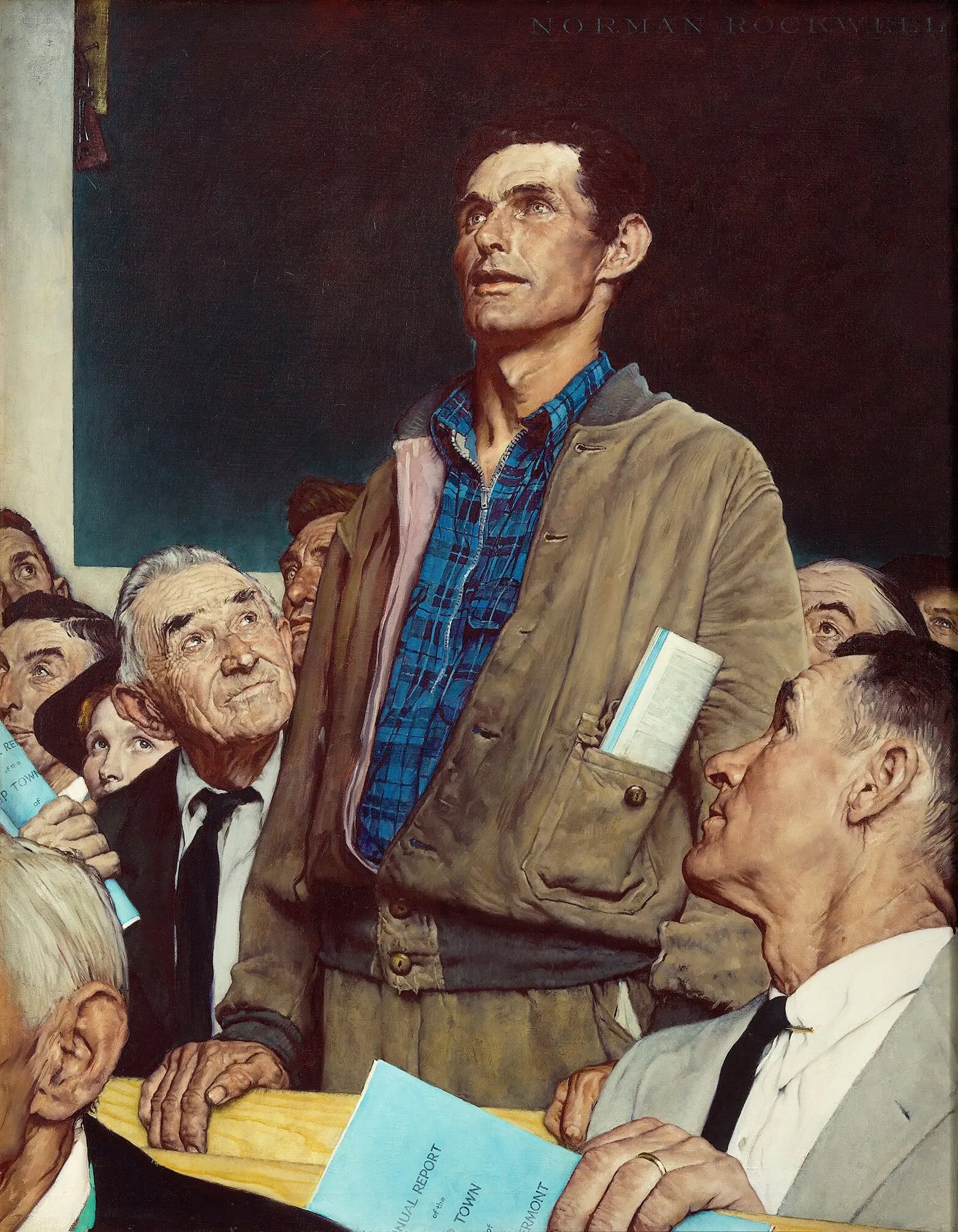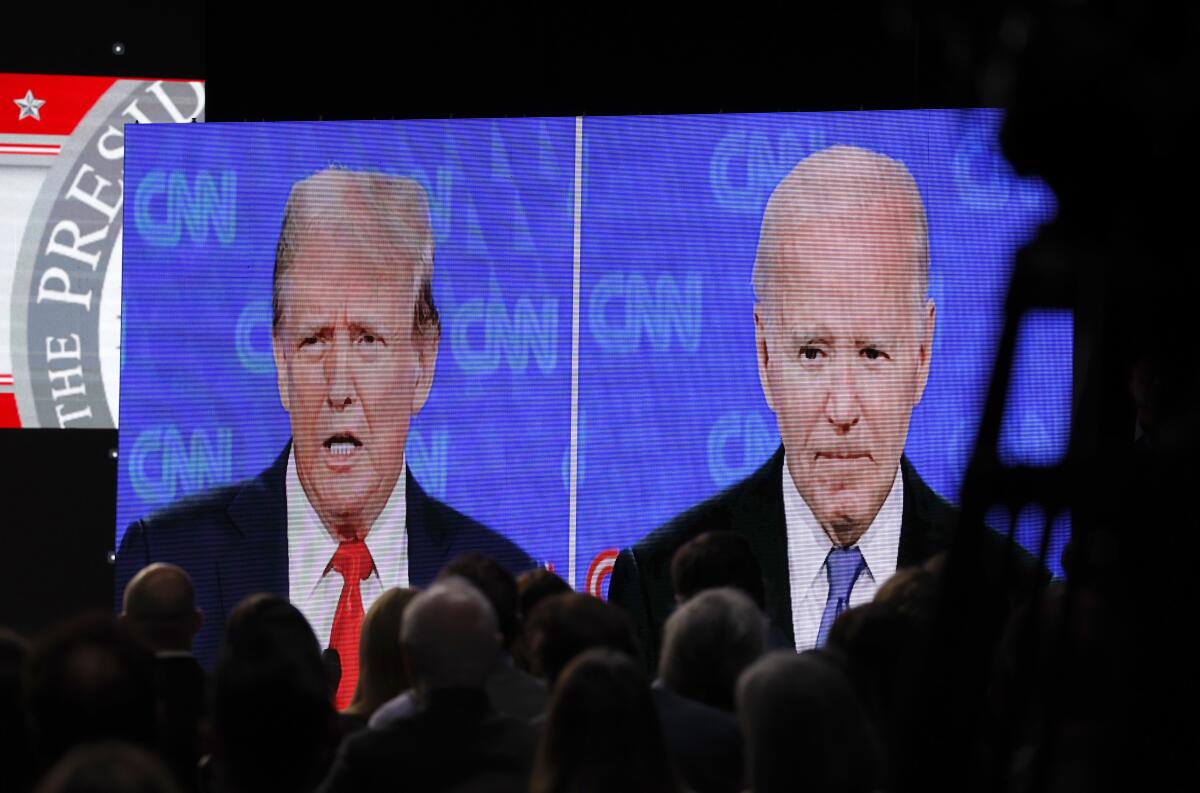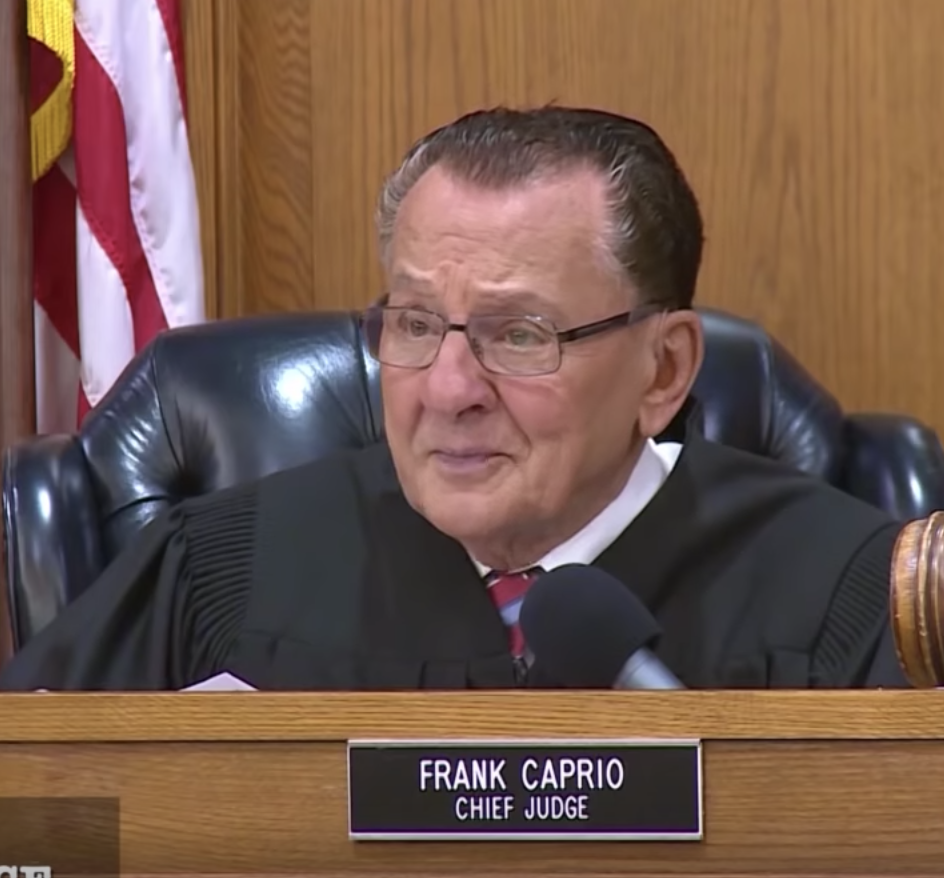From time to time, people contact me for a variety of reasons. Some tell me stories. Some ask for help. Some even send books.

After reading my commentary, The Wrath of Kant, former high school English teacher and author Bill Kraft offered to send me a book. Kraft, a Star Trek enthusiast, set about to accomplish, what most people might think of, as an easy task: he launched a write-in campaign to have the television show Star Trek honored with its own U.S. commemorative stamp; and he wrote a book about it, Maybe We Need a Letter from God: The Star Trek Stamp.
Now, all this sounds interesting, but I wondered, what has this got to do with ethics?
One aspect of the ethical value of responsibility is the pursuit of excellence. Diligence and perseverance in achieving goals are two dimensions of that pursuit. After reading Bill’s book, I was astounded at both his diligence and determination in reaching his goal.
Why was he so resolute in getting the Postal Service to commemorate a television show?
“What I learned early in the campaign was that initial rejection was inevitable,” Kraft said, “part of the bureaucratic process. What I also learned was that you never let the naysayers demoralize you.”
While I admire Bill’s passion, I kept wondering – 13-years… for a stamp?
I found the answer in the book’s prologue:
“Postage stamps are more than images on envelopes. Their visuals can tell us who we are, where we’ve been, what we dream about, where we want to go, and what we aspire to become. Maybe the greatest exploration is the one that takes us to the best in human nature, our fundamental decency. Star Trek took us on journeys to our inner and outer worlds. Maybe the final frontier is within us and somewhere ‘out there,’ too.”
There is no denying the impact Star Trek has had on our culture. The early, pocket size flip-cell phones were inspired by the communicators on the show, and the first space shuttle was named after Star Trek’s “Enterprise.”
While Kraft did face a wall of governmental resistance, he was not prepared for the initial reaction from what should have been a zealous base.
“I recall an encounter with fans in Cleveland during a Star Trek convention in 1988. My request for their support was met with discouraging words about how you can’t fight City Hall and the bureaucracy. I also recall my reaction to form letters of rejection from postal officials bound by bureaucratic intransigence.
“The rejection letters,” Kraft says, “had an inverse effect. They steeled my resolve… I didn’t believe in a no-win scenario.”
Those last words come from the 1982 film, Star Trek II: The Wrath of Khan where Admiral Kirk confesses to a student that he manipulated a computer program that would allow him to win a simulated attack. Kirk’s rationalization: “I don’t believe in the No-Win scenario.”
However, Kraft says, “When good things happen, you make more good things happen. When endorsement letters came, we pressed for more.
“To my surprise,” Kraft told me, “I found that high profile people and celebrities were more accessible than I had anticipated. When I dialed Ray Bradbury’s phone number and heard his voice on the other end of the line, I was astounded that I had ‘The Man’ in person. I began to realize that the improbable was not so improbable after all. The ‘Bradbury Break Through’ emboldened me and the committee to pursue other persons of note with great success. In ensuing weeks endorsement letters came from Isaac Asimov and Arthur C. Clarke.”
Among those who gladly added their name and support behind the Star Trek stamp:
Stuart Wallace, director of The Christa McAuliffe Planetarium in Concord, New Hampshire; Gerald K. O’Neill, president of the Space Studies Institute, Princeton, New Jersey, H. Hollister Cantus, associate administrator for External Relations at NASA, Washington, D.C. and Jack Rosenthal of The SETI Institute.
Further, a whole host of Republicans and Democrats found something they could agree on! Senators Kent Conrad, Mark Andrews, Paul Simon, Quentin Burdick, John Kerry, Dave Durenberger, Larry Pressler, and Rudy Boschwitz; U.S. Representatives Byron Dorgan, Pat Schroeder, David Minge and Collin Peterson all sent letters of support.
And what was the response from the Citizens’ Stamp Advisory Committee?
Star Trek is a commercial venture.
“That’s nonsense,” Kraft told a reporter for the Chicago Sun-Times. “They published a Laurel and Hardy stamp, and somebody’s making a profit off of those old films.”
Another restriction by the committee: events of historical significance shall be considered for commemoration only on anniversaries in multiples of 50 years.
Arbitrary to be sure, but Kraft and his Enterprise Stamp Committee only became more persistent. “We had invested too much passion, too much energy, too much labor, too much money and too many people on signed petitions and in letters to Washington,” Kraft says. “Star Trek has become part of the curriculum in higher education, secondary and primary schools in a wide spectrum of academic disciplines including science, history, ethics, philosophy, theology, law, mathematics and language.”
In his doggedness, however, Kraft encountered an unexpected benefit.
“[The stamp campaign] expanded for me a whole new universe of friendships, intellectual challenges and new experiences. Strangers who volunteered as members of the stamp committee have become life-long friends. Science fiction, which I once dismissed as Saturday matinee kid-stuff, exposed me to a new world of ideas about people and the human condition. New voyages have taken me to places like the Space Needle and EMP (pop culture with emphasis on science fiction) Museum in Seattle. Other voyages have taken me to discoveries in the human heart, something that great storytelling always does. Without Star Trek and the stamp campaign some of the best parts of my life would have remained in dry dock.”
After 13 long years, and thousands of letters and votes from the notable to the ordinary, Kraft was wondering, “Maybe we need a letter from God!”
Well, God, or his representatives must’ve been listening because the July 15, 1998 edition of The St. Cloud Times announced victory. “It’s official. There will be a Star Trek stamp issued by the United States Postal Service. It will be available September 1999.”
“What accounts for Star Trek’s enduring appeal?” Kraft asks. “Yes, it’s great adventure with ideas that challenge the intellect and characters we’ve embraced with great affection. But I think what resonates most is its unabashed optimism that humankind has a future. Star Trek is about humankind’s potential to evolve into something finer and nobler. I think that is what Gene Roddenberry meant when he said the human adventure is just beginning.”
Last year, the U.S. Postal Service announced its list of commemorative stamps for 2016. Among them, “Celebrating the 50th anniversary of the television premiere, the new Star Trek Forever stamps showcase four digital illustrations inspired by classic elements of the television program.”
Looks like the Advisory Committee found their 50th anniversary requirement.
“You may encounter many defeats,” author Maya Angelou reminds us, “but you must not be defeated. In fact, it may be necessary to encounter the defeats, so you can know who you are, what you can rise from, how you can still come out of it.”
Comments
Leave a Comment











This comes from the June 2016 copy of the “Smithsonian” magazine:
“Star Trek, in all of its incarnations, has profoundly affected pop culture, science and technology, but there is one it has affected more than its legion of fans. As one of those fans, I can state with conviction, that I wouldn’t be the person I am now, as a writer, as a teacher, as a human being, if Trek’s optimistic take on humanity and its direction had not shaped my worldview.”
Kristin Dilley, via Facebook
Who would think?